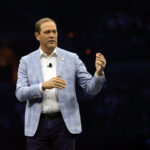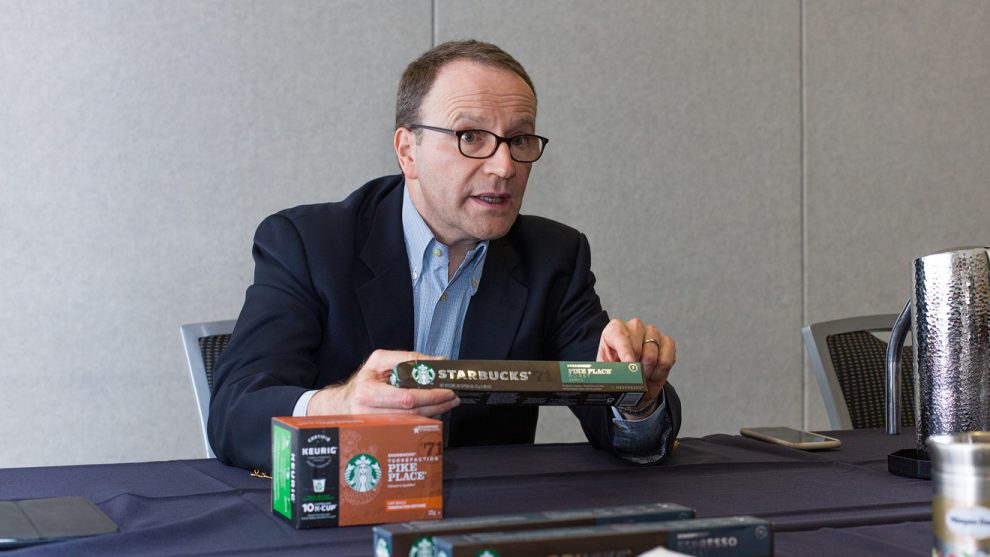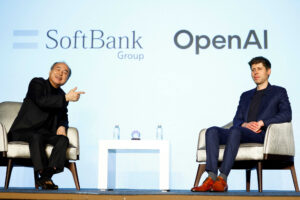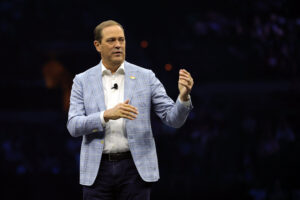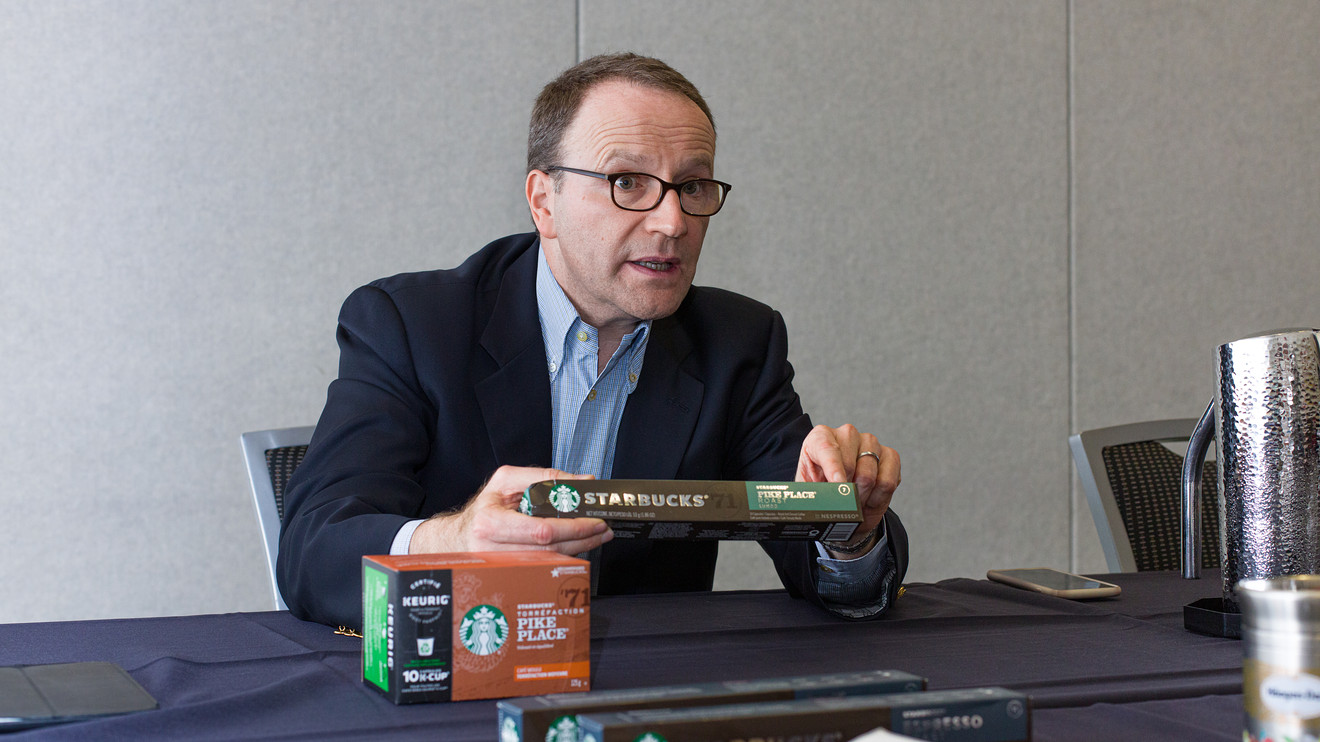
PLEASE PRE-PUBLISH AT 7 A.M. GMT MONDAY MORNING
He’s the man behind KitKat, Nespresso and Haagen-Dazs, but despite manufacturing some of the world’s best-known products, Mark Schneider, chief executive of Nestlé, thinks the future lies with a brand unfamiliar to most – Incredible Burgers.
The plant-based meat substitute is being developed by Nestlé NSRGY, -0.54% NESN, +0.20% the world’s largest food group, in response to fast changing consumer habits.
“The whole notion of giving consumers a choice when it comes to plant-based alternatives is going to be a key theme going forward,” Schneider told MarketWatch in an exclusive interview. “We’re talking about a pretty significant mega-trend.”
So out, it seems, goes Herta, Nestlé’s European meats business, though the official line is it has been placed under review, and in comes Incredible, the trendy new food creation. “It’s not only limited to plant-based burgers,” says Schneider. “We have plant-based chicken products, and we’re working on a whole lot of other formats, including even sausages and bacon.”
The German boss was parachuted in as chief executive of the Swiss-based conglomerate in 2017 after a period of weak financial performance which saw the business lose market share. Organic sales growth had also slowed from 4.6% in 2014 to 2.4% in 2017.
Nestlé, which also owns Purina pet food, Nescafe, and Perrier bottled spring water, had been too slow to react to the changing marketplace and the shares had significantly underperformed their European peers.
The shares rose 20.6% between the end of 2013 and the end of 2018, compared with a 23.2% increase in the benchmark S&P 500 stock index. The lackluster performance attracted the attention of activist investor Third Point, which in 2017 took a $1.5 billion stake in Nestlé.
Schneider was in Vancouver, Canada to give a speech at the annual summit of the Consumer Goods Forum. The 53-year-old strode across a windowless meeting room and grabbed a bag of Nestlé products. Tall and focused, he took out an empty tub of Haagen-Dazs to showcase the reusable metal container.
“Starting from the beginning of 2018, quarter after quarter, we began to accelerate again,” he said. “What is amazing with millennials is for the first time in decades people are again spending a higher percentage of their disposable income on food and beverage.”
The future he says is in premium products, and their personalization.
“I think confectionery overall may be one in the future,” Scheider said. “Think about the proverbial box of chocolates, where you always find a few chocolates that are left, and imagine you buy a box of chocolates where there is a number of varieties in there, but all of them pretty much right up your alley.”
The Swiss food group owns the Quality Street brand, a box of chocolates containing an assortment of different flavors.
Ending up with some chocolates in the box that you don’t like is an age old problem that still needs solving, he argued. “It goes right back to Forrest Gump, and life is like a box of chocolates, you never know what you get.”
Schneider is also cryptic about cannabis and whether legalization in some jurisdictions could be an opportunity for Nestlé. It already produces some medicinal CBD and some consumer firms are going a step further.
“I know there is a whole lot of interest in mixing these ingredients into all sorts of food and beverage products, but there are also a few problems that come with that, for example, dosage control” he says. “I would want to see where the market goes, and also how some of these safety concerns can be effectively addressed. For the moment, we are really only focused on these nutritional supplements.”
Schneider was born in Neuwied, Germany, in-between Frankfurt and Bonn. He graduated with a degree in finance and accounting from Switzerland’s University of St. Gallen in 1988, took a Ph.D. in Business Administration from the same university, and also has an M.B.A. from Harvard.
He has worked in the pharmaceutical industry for most of his career starting with family owned conglomerate the Haniel Group, joining Fresenius in 2001 where he eventually was appointed chief executive.
He became a U.S. citizen in 2003 and joined Nestlé in 2016 as part of a transition process to becoming chief executive in 2017. He is the first outsider to take the helm since 1922.
Schneider’s speech to Consumer Goods Forum in Vancouver was titled “Business As a Force for Good – The Nestlé Way”.
How can a firm that ships water around the world in plastic bottles, makes aluminum Nespresso capsules, and produces chocolate that fuel the obesity epidemic can be considered a force for good?
“Packaging is important to preserve product quality and product safety, and also provide a decent shelf life,” he said, unruffled by a question he must have batted many times. “And we understand we have work to do to square these product quality and safety requirements with an improved environmental footprint.”
On obesity he says labeling is important in terms of portion control but fundamentally “we are eating for a whole lot of reasons” and “food is so much more than just fuel”.
Investors will be hoping the drive toward healthier plant-based products, which are kinder to the environment, will also deliver fatter earnings and an expanding share price.



